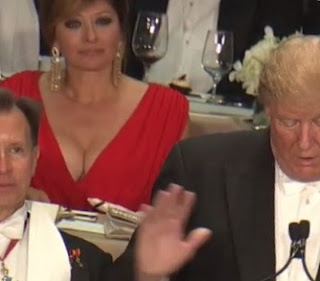Now, if I can just get Joe on the phone.
I know his handlers are preparing him for the debate.
I know they are telling him to keep his answers short and punchy.
I know they remember what happened in 2019 when he spoke at the Community Oven in Hampton, New Hampshire in the run up to the New Hampshire primary, where he got run out of town and came in at fifth place.
Poor Joe. He could not remember the question long enough to answer it. He could not remember the first part of his sentence by the second half of it.
But he won't have to, if he comes prepared.
First, he will know Trump will attack his son and try to rattle him with that.
Biden should be rehearsing his response: "Everyone knows you want to rattle me with attacks on my kids, on my family. Hell, everyone knows the reason I didn't jump in last time was because of what happened to my son. But I'm not going to dignify that stuff with a response, beyond saying I'll put up my kids against your kids any day. And I never gave any of my kids an office in the White House, or made the public's business a profit center for my family."
 |
| Population of Coasts=Population of Center |
2nd: On Trump's divisiveness
"Every despot in recent history has tried to divide and conquer.
For you it's about calling migrants an "infestation."
It takes the form of throwing little kids into cages.
 |
| LA County Population= or > Each of these States |
3rd: Very fine Nazis
"Even in this time of divided government, what people have called an 'angry moment' I thought all Americans could agree there is no such thing as "a very fine Nazi."
 |
| New Hampshire Pig |
4th: On Science Denial
"You went from warning that vaccines cause autism to claiming a vaccine will save us by election day. You denied coronavirus is anything more worrisome than the common cold. You insisted it would "melt away like magic." You muzzled your best scientists and tried to substitute wishful thinking for real science. Where did that get us? It got us 200,000 deaths.
Does that feel like winning to you?"
 |
| Those Who Served Civil War Hampton, NH |
5th: On Medical Care
"You promised to replace Obamacare with something cheaper and better. All you've done is to defund it, undermined it but you never had an idea of your own about any alternative. You're great at throwing Molotov cocktails and burning the building down, but you're a miserable failure at building anything--except for bankrupt casinos"
Those 5 things; count 'em on your fingers. Throw them out there, if you can.
UPDATE:
#6: "$750 A'INT MUCH PATRIOTISM"































